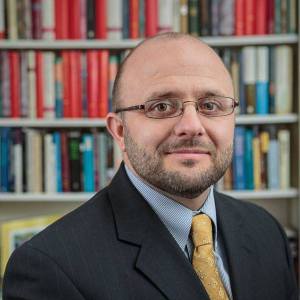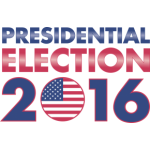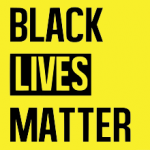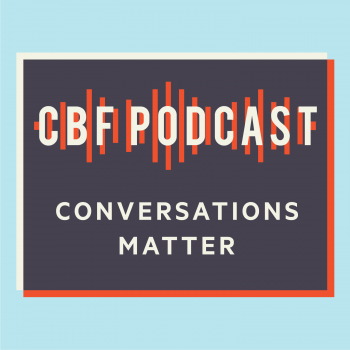By Jason Coker
I never had the luxury of just being a human being; no one in our area did. You were either white or black. This was the racial discourse of the Mississippi Delta in the decades of my childhood and adolescence—1970s-1990s.

I was white—sort of. I embodied a problem—a terrible problem at the intersection of race and class. I was that hybrid-monster white trash. By race, I had all the privilege of whiteness. By class, I was among the poor. This contradictory, paradoxical space is what I call liminal whiteness.
I cannot overlook the fact that I was a boy. This fact afforded me tons of privilege that my sister resented and could never accept and rightfully so. Being a white, heterosexual male should have put me in the powerful position of the dominant leaders of Western civilization—all except that poverty thing. That thing positioned me on the farthest reaches of whiteness on the border with that which is white and that which is not white—other.
Mississippi has a legacy of these boundaries. The only people with permission, however hush-hush the permission was, to transgress these boundaries were wealthy white men who had all sorts of illicit affairs with all sorts of women, girls and boys with biracial children to prove it—but nobody talked about this other liminal space (the red babies according to the Black community; high-yellow according to the White community).
It was a place of scorn to be too light or too dark in the Black community of the Mississippi Delta. That was a different kind of “mixed” or hybrid than me. Besides my Cajun daddy, I was white to the bone—whatever that means. My hybridity blurred the simple white/black binary. Being white, I could pass as long as I dressed a certain way, “carried myself” a certain way, spoke a certain way, and understood the “manners” of real white people. All this, of course, is performance and I had the right costume to play the part, i.e. the right skin color.
The problem was the fact that I sincerely did not know some of the social rules of real whites, and I sincerely hated many of the other rules of real whites. (Read real white as rich white or at least not poor white).
I was ridiculed along with my sister and mother and father as a skank. This is the dirtiest word a real white can call a poor white. The term white trash hadn’t gained its popularity at this point; skank was the term du jour—or trailer trash, that one burned, too. These terms policed the class border between real whites and trash. These terms verbalized a host of social actions performed by real whites—the awful, patronizing/disdaining gaze (chin raised ever so slightly, eyes directed down the middle shaft of the nose, slow head movement from the toes to the head then right into my eyes—my dignity always retreated when their eyes encountered mine). Mine would quickly shoot to the ground and make my whole head bow down.
I hated myself for that reaction, but I have never been able to stand there and gaze back. All my hate just tucked up under my legs like a scared dog. I hated them even more for making me feel that way. I was a physically strong, good-looking kid that was outgoing and smart, but I coward under this gaze every time. These were my social superiors and I instinctively “knew my place.” There was a place for everything and everybody and I knew I was poor. So poor, in fact, that my sister and I went to public school.
Very few white people were this poor and it was the most definitive line between whiteness and trash that existed. All good white people/real white people went to private schools that were all white. This is how real white people overcame the degradation of integration. They just built their own schools and the beauty of it all was that they didn’t ever have to worry about trash getting confused anymore. Trash went to school where they belonged—with Black people. It was through these negotiations with whites that we understood that we were never quite white.
It was a whole different kind of racial and social negotiation within the Black community—the community in which I lived and breathed more than anywhere else. At school, it was always made clear that I was not Black. My de facto nickname was White Boy. “Hey, White Boy, come over here.” “What’s up, White Boy?” “You crazy, White Boy.” It was seldom used as a pejorative term, but it could be! “G—d— White Boy!” “Sorry A, White boy!”
Mostly a term of endearment, but always a term of othering, White Boy functioned to let me know (most of the time) that I was loved and accepted but certainly and unequivocally white. No matter how much time I spent with my friends, no matter what school I went to, no matter how much I performed blackness, I was always white—White Boy.
The best example of this came on a fall day after school. I was with a lot of my school friends playing football in the neighborhood. Needless to say, I was the only white kid. After we finished playing, Greg told everybody to come to his house because his mamma was cooking cheeseburgers. As soon as he said it, he stopped quickly. Everybody stopped and looked at me, then looked at Greg, then Greg—wide-eyed—swallowed deeply and said, “You can come, too, Jason. I think it’s okay.”
The uncertainty in his voice was matched only by the body language of all of us. We were in an awkward moment of transgressing racial boundaries. We got to Greg’s house within minutes and we all walked in. Mrs. Flippins was at the stove frying the burgers on a cast-iron skillet. She smiled when we all walked in and then had to do a double take.
She looked at me and looked at the skillet. She did this multiple times and each time she took more time to move her gaze between me and the skillet. Finally, she said, “I got a white boy up in my house.”
It sounded more like a question than a statement. She repeated it. She asked, “You want a cheeseburger?” Her tone indicated that she knew I did and that she didn’t really want to make me one. It was uncomfortable for every one of us. We were all waiting to see what was going to happen. I said, “Yes, ma’am.”
She fixed me one. Then repeated, “I got a white boy up in my house.” It became her mantra.
Every time she said it the more comfortable she got with the idea. The tone of her voice moved from severe, to compromising, to accepting. By the time she quit her mantra I had eaten my second cheeseburger and she was smiling when she said it, “I got a white boy up in my house!” I should mention that the cheeseburgers were terrific!
I was never asked back to Greg’s house, and come to think of it, I was never invited to any of my friends’ houses except for that accidental invite after a fun game of neighborhood football. It wasn’t that I wasn’t welcomed or anything like that; it was just that we were kids and we had never seen anything like that in our lives—white people in black people’s homes and black people in white people’s homes. How can little kids in 7-8th grade playing football in the backyard figure that stuff out?
We did not create these racial boundaries; we were born within them, and I embodied an impossible position on the border. In school, my white skin afforded me very little privileges—it afforded me my first fist fight in 6th grade, ridicule for having dog’s hair, ridicule for embodying all that my classmates were taught to hate about white people.
My best friends called me Jason; my worst enemies called me “white bread, chicken s— honky.” All of them knew I was white; but only in relation to them. However, if I was really white, I would have never known them—and I would have been less of a real person.
Negotiating racial space especially in an area of intense and historical racism without a good vocabulary to have racial discourse is simply too difficult for children.
I am not trying to create a minority position for myself. I am too painfully aware of white privilege in American society to do that. I am also painfully aware of male gender privilege in American society. I am writing this because I think it is important.
Marked whiteness or liminal whiteness like mine provides a good position to deconstruct race. In my lived experience with race—specifically liminal whiteness—the simple categories of white/black begin to break down. As these social constructs are dismantled, I think we can begin to have racial discourse that moves toward giving life rather than barricading it out of fear and tradition.
I also hope this story of liminal whiteness helps us see how issues of identity and otherness are always complicated and never self-evident.
Dr. Jason Coker serves field coordinator of CBF of Mississippi and as leader of Together for Hope, the rural poverty initiative of the Cooperative Baptist Fellowship. A native of Shaw, Mississippi, Coker is the founder of Delta Hands for Hope, a nonprofit organization aiming to strengthen and enhance local community assets related to education, spiritual development, health and recreation of school-age children in the Mississippi Delta. With nearly 20 years of ministerial experience, Coker most recently served as pastor of Wilton Baptist Church in Wilton, Connecticut.
Note: The views expressed here in columns and commentaries are solely those of the authors.
Interested in writing for CBF at Patheos? Submit your column idea to CBF Communications Director Aaron Weaver at [email protected].












